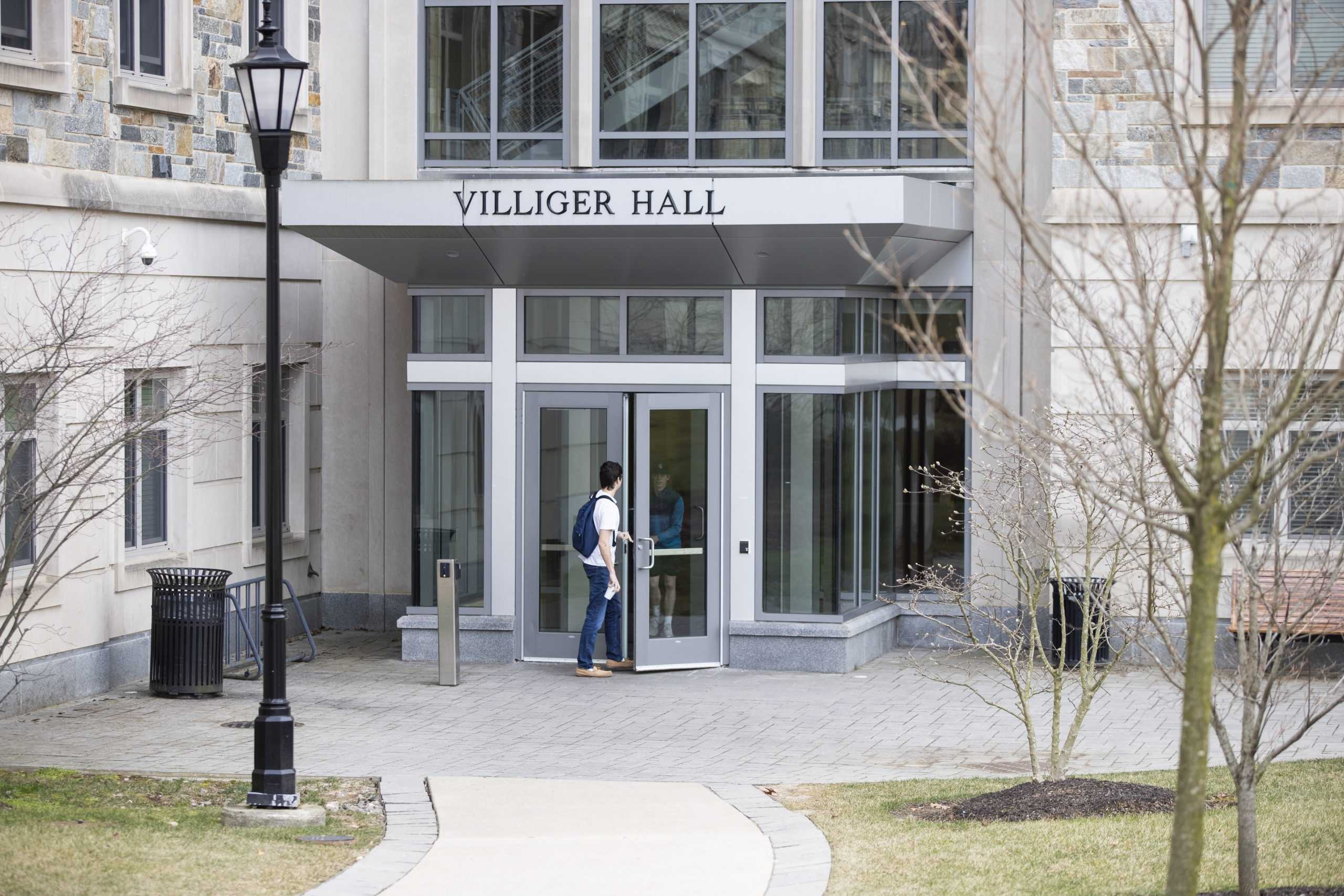For many first-year students, the start of the spring semester can leave them feeling lost and overwhelmed, experiencing not only stress but also anxiety and depression.
That stress actually starts to build in November and December of the previous semester, when St. Joe’s Counseling and Psychological Services (CAPS) sees an increase in first-year students seeking help. The stress can snowball into the next semester, according to Greg Nicholls, Ph.D., CAPS director.
“If the first semester maybe hasn’t gone as well as they wanted it to socially or academically, then there will be a degree of fear and anxiety about coming back,” Nicholls said.
Nicholls said some first-year students may doubt whether or not their situations and experiences are capable of improving.
“A lot of factors go into more stress and anxiety experienced by freshmen than maybe the other students from the other classes,” Nicholls said. “We start to see more freshmen now that we are like three to four weeks in, and we will continue to see a good number of them.”
Anxiety and depression affect college students more than any other mental health concern, according to The Pennsylvania State University’s “Center for Collegiate Mental Health (CCMH) 2019 Annual Report.” There are many causes for this, the report stated, such as the pressure to perform well academically and socially.
Leyna Jewell ’23 said she felt anxious about returning to campus in January after her first long break at home in Somerdale, New Jersey.
“I was definitely anxious to come back because I was home for so long,” Jewell said. “I just started to get used to being home again after being at school for so long, so it definitely made me anxious to come back.”
Sydney Bennett ’21, an RA for first-year students in Lafarge Hall, said she often hears from her residents that they are struggling or need some guidance as the new semester comes around. As with CAPS, she said more of her residents reach out to her in the second semester.
“I think they see it as RAs are like their peers that they can look up to and be open and share with without it being judgemental or without fear that they have to go to someone higher than them,” Bennett said.
While seeking help for anxiety is crucial, many students struggle with the stigma surrounding counseling. Bennett said many of her residents do feel more comfortable reaching out to her if they need assistance, although she does refer residents to CAPS when she feels they could benefit from professional help.
Nicholls said it is important for students to reach out when they need help, and to not let these feelings bottle up and deal with their issues alone.
“There’s that metaphor, you know, of that fly trying to get out of the window, and it just keeps bouncing against the window, right?” Nicholls said. “That’s sort of what it can be like when we try to solve a mental health issue on our own.”
Jeanine Rastatter, lead coach for the college transition program in the Office of Learning Resources, helps guide students in maintaining academic success and getting adjusted and settled in to the demands and responsibilities of college life. Rastatter also sees an uptick in first-year students seeking assistance at the start of the spring semester.
“We had at least 20 new students to the program this past January,” Rastatter said. “And I’m sure that they came to the program because they were a little dissatisfied with their grades, maybe the anxiety was there, or they felt a little anxious about wanting to improve.”
One simple factor Nicholls said can help first-year students deal with their anxiety is sleep.
“If first-years are not sleeping well, then the sleep-deprived brain is similar to an anxiety-driven brain,” Nicholls said. “It’s like throwing some lighter fluid on the anxiety.”
If you or someone you know may be at risk of suicide, call CAPS (610-660-1090), Student Outreach and Support (610-660-1149) or the National Suicide Prevention Lifeline (1-800-273-8255).














































